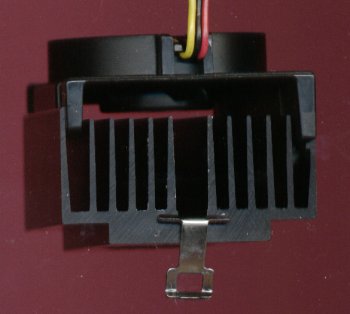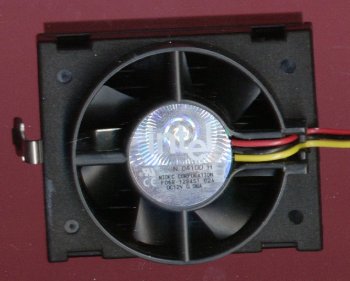Socket-A / Socket-370 Cooler Roundup - July 2000
by Tillmann Steinbrecher on July 14, 2000 7:57 PM EST- Posted in
- Cases/Cooling/PSUs
If you buy an Intel "boxed" CPU, it will ship with a cooler. Depending on the CPU, the cooler model varies. We have tested the cooler that is included with the PPGA Celeron 533, which should probably be the most efficient among the "boxed" coolers, since the PPGA 533 has the highest cooling requirements of all Celeron CPUs.
Both heatsink and fan are
relatively small. Since Intel, like any other CPU manufacturer, doesn't encourage
overclocking, it is clear that they didn't design the included heatsink with
overclocking in mind.


The fan
The Nidec fan, spinning
at 3900 rpm, is very good quality. It isn't extremely loud; calling it "quiet" would
be exaggerated though.
The fixation clip of the boxed heatsink is very cheap and hard to uninstall. The cooler comes with a preinstalled thermal pad. Removing the pad and replacing it with high quality thermal compound dropped the temperature of the test CPU by 8°C!
Conclusion
The performance of the "boxed" heatsink isn't convincing at all. Overclockers should definitely replace their boxed heatsink with a better cooler - or, even better, buy a non-boxed CPU and a good heatsink separately.
If you already own such a heatsink, then a good and cheap method to improve cooling is to scratch off the thermal pad and apply a thin layer of thermal compound instead.
| Intel "boxed" cooler |
|
Fans:
One Nidec
Fan
rpm: 3877
Weight: 140g
Height: 45mm DIMM slots blocked on P3B-F: 0 (!) Price: n/a |
| Advantages |
|
| Disadvantages |
|










0 Comments
View All Comments